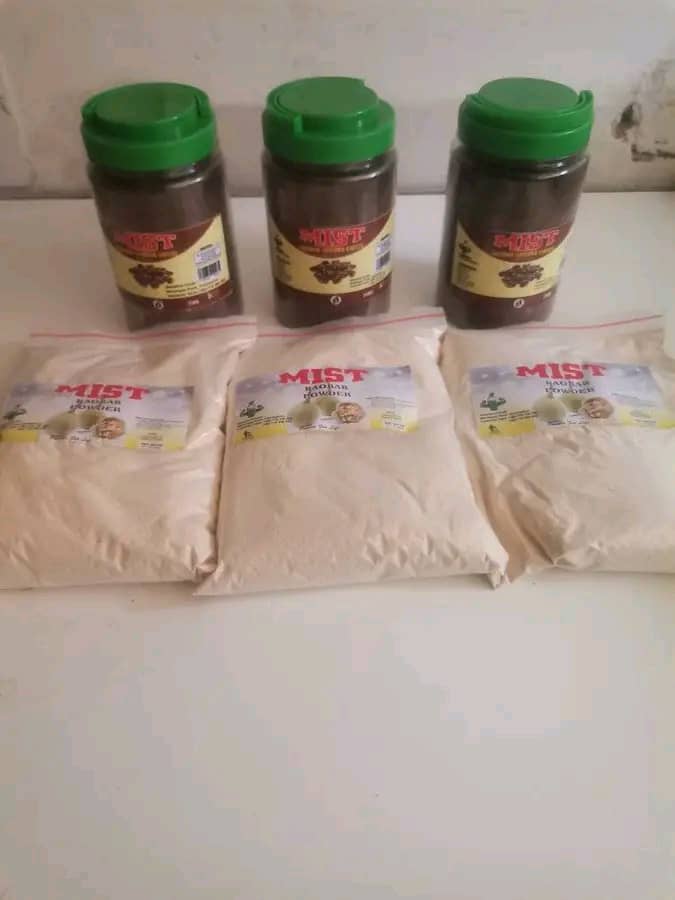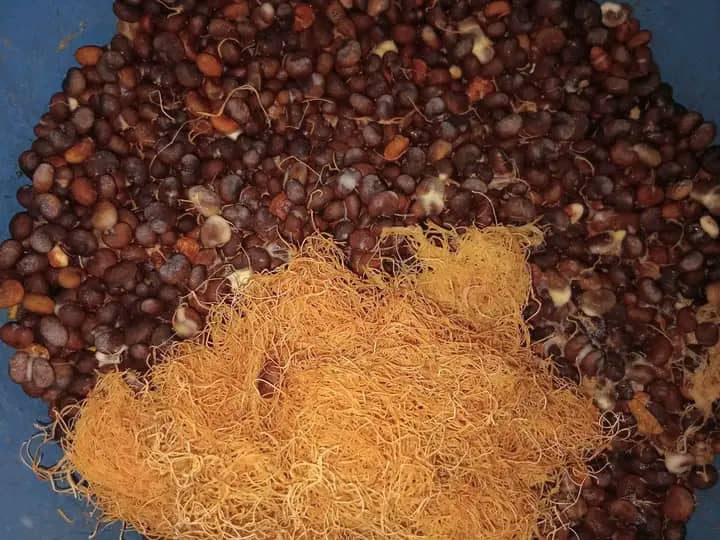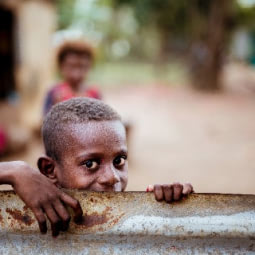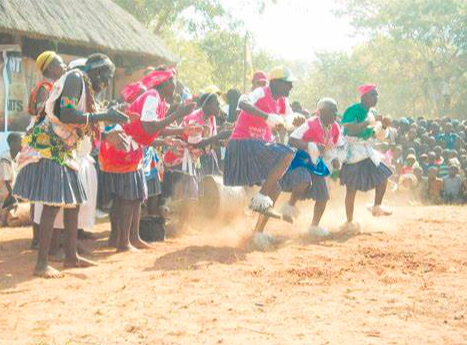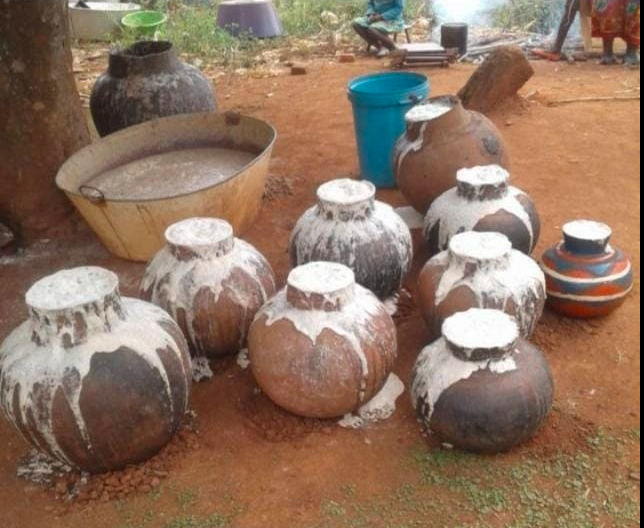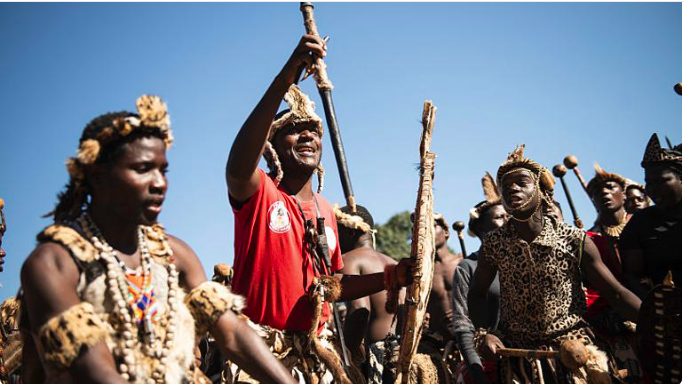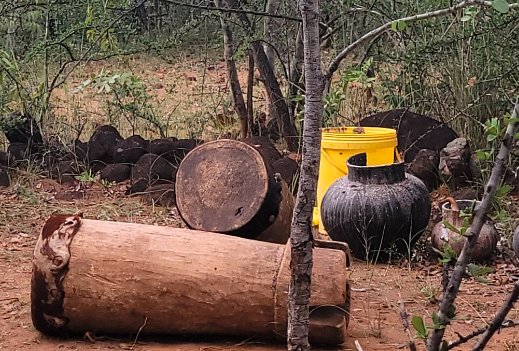In Zimbabwe’s sun-drenched lowveld, specifically the Chipinge District, a silent revolution is being powered by the entrepreneurial spirit of local youth and the abundance of the baobab tree (Adansonia digitata). This initiative is an inspiring example of economic empowerment and sustainable resource utilization, perfectly aligning local innovation with national development goals such as NDS1 (National Development Strategy 1) and Vision 2030. By transforming the versatile baobab fruit, locally known as mauyu, into high-demand products like freezits (ice lollies) and baobab coffee, these young people are not just improving their own lives; they are carving out a sustainable future for their entire community.
The baobab, often called the “Tree of Life,” is an iconic fixture in the African landscape, thriving particularly in hot, dry regions by storing vast amounts of water in its massive trunk, symbolizing resilience and abundance. The fruit is a large, egg-shaped, velvety capsule containing a dry, powdery pulp naturally fused around its seeds. This pulp is a nutritional powerhouse, significantly richer in Vitamin C than oranges, packed with Antioxidants vital for cellular health, and high in Fiber essential for digestive wellness. Traditionally, the seeds were often discarded or used only for oil, but they are now the foundation of the youth’s innovative coffee alternative. Some of the youth who are involved are from Wards 16, 5, and 20. The Ministry of SMEs should assist in registering these youths’ companies and handling all the proper registration processes. They should also teach them the proper way of adding value to their products. The Network for Community Development is really working hard to link these youths with the Ministry of Youths so that they will see what they are doing and also consider them in their different programs.
From Tree to Table: Innovative Baobab Products
The enterprising youth in Chipinge have creatively tapped into every part of the baobab fruit to develop a range of popular consumer products that are driving local employment. The tangy, citrus-like baobab fruit pulp is an immediate hit, especially in the warm climate. Ice Lollies/Freezits are produced by mixing the pulp with water and sugar (or leaving it raw), pouring it into plastic sleeves, and freezing it. These refreshing, natural treats provide a healthy, income-generating alternative to sugary snacks. They are easy to produce, require minimal equipment, and offer a quick return on investment, making them an excellent entry point for young entrepreneurs. Furthermore, the pulp can be consumed raw, offering a quick dose of vitamins and fiber, or mixed into porridge, smoothies, and juices.
The most revolutionary product is baobab coffee, which is made from the roasted and ground seeds of the fruit. This innovation addresses a global market trend for natural, healthy, and caffeine-free alternatives. Unlike traditional coffee, baobab coffee provides a rich, roasted flavor without any caffeine, making it accessible to a wider audience, including those with certain health conditions. Beyond its taste and caffeine-free nature, the seeds possess a host of potential health benefits that align with a growing global emphasis on wellness and functional foods.
The Health Dividend of Baobab Products
The health profile of both the pulp and seed products is a major factor driving their high demand. The high concentration of Vitamin C in the baobab pulp is crucial for supporting a robust immune system. The seeds and surrounding pulp are also rich in dietary fiber, both soluble and insoluble. This high fiber content aids in regular bowel movements and acts as a prebiotic, feeding the beneficial bacteria in the gut microbiome. Traditional uses and preliminary studies suggest that baobab may also play a role in managing chronic conditions. The fiber can help slow down the absorption of sugar into the bloodstream, potentially aiding in blood sugar control (vital for diabetes management), and its mineral content, including potassium, can contribute to regulating blood pressure (hypertension management). The comprehensive nutritional profile also supports long-term health by helping to lower bad cholesterol (LDL) levels, reducing the risk of cardiovascular disease, and providing essential minerals like calcium and magnesium for strong bone density.
Alignment with National Development and Vision 2030
The baobab initiative in Chipinge District is a tangible manifestation of Zimbabwe’s national strategies for economic growth. NDS1 emphasizes “using what we have“—leveraging local resources and natural capital for sustainable development. The baobab project perfectly embodies this principle by taking a freely available, abundant, and underutilized natural resource from the lowveld and adding value. It creates jobs in harvesting, processing, manufacturing (making freezits and coffee), packaging, and distribution, thereby boosting employment in rural areas. Engaging in value addition instead of selling raw commodities increases the product’s market price and the local economy’s resilience. The goal of Vision 2030—to transform Zimbabwe into an upper-middle-income society—is intrinsically linked to empowering citizens with the resources they possess. By building local enterprises around the baobab, the youth are fostering a culture of innovation and demonstrating the capacity of rural communities to contribute significantly to the national economy. This self-reliance is the engine of true prosperity.
Recommendations for Sustained Growth
While the current demand is high, scaling the operation from a community-based enterprise into a national and international success requires strategic support.
- Enterprise Formalization and Expansion Instead of relying on fragmented individual producers, a collective or cooperative should be formalized into a larger, well-structured company. This single entity would have the capacity to secure larger contracts, invest in professional-grade processing equipment (e.g., more efficient roasting and grinding equipment and better cold-storage facilities for freezits), and standardize product quality and packaging for regulatory compliance and export.
- Market Access and Promotion A professionally designed website and active social media presence are non-negotiable for reaching wider markets. This platform should detail the product’s health benefits, showcase the Chipinge youth’s story, and facilitate online sales. Stakeholders, including government agencies, development NGOs, and private sector partners, must assist by:
- Securing shelf space in major national retailers.
- Navigating the complex requirements for exporting to regional and international markets (e.g., certification, labeling, and quality control).
- Sponsoring the youth to showcase their products at national and international trade fairs to attract foreign buyers and investment.
- Sustainable Resource Management To ensure the longevity of the enterprise, a sustainable harvesting and replanting program must be implemented. Training the community on the best practices for non-destructive harvesting of the fruit and encouraging the planting of new baobab trees will safeguard this vital resource for future generations.
Conclusion: Seeds of a Brighter Future
The story of the young people in Chipinge District is a beacon of hope, proving that grassroots innovation, when coupled with a rich natural heritage, can unlock transformative economic potential. They have taken the ancient baobab tree and given it a modern purpose, not only creating delicious, healthy products but also forging a direct pathway to employment and self-empowerment. By converting mauyu fruits into in-demand items like refreshing freezits and health-boosting, caffeine-free coffee, these youths are contributing significantly to local income generation. Their work perfectly echoes the government’s Vision 2030, showing that the power to build a prosperous future lies in the hands of the people, utilizing the resources that nature has so generously provided. With strategic support to scale their operations and open up international market channels, the Chipinge baobab initiative is poised to become a blueprint for rural economic development across Zimbabwe and beyond. The future is being brewed, one cup of baobab coffee at a time.

